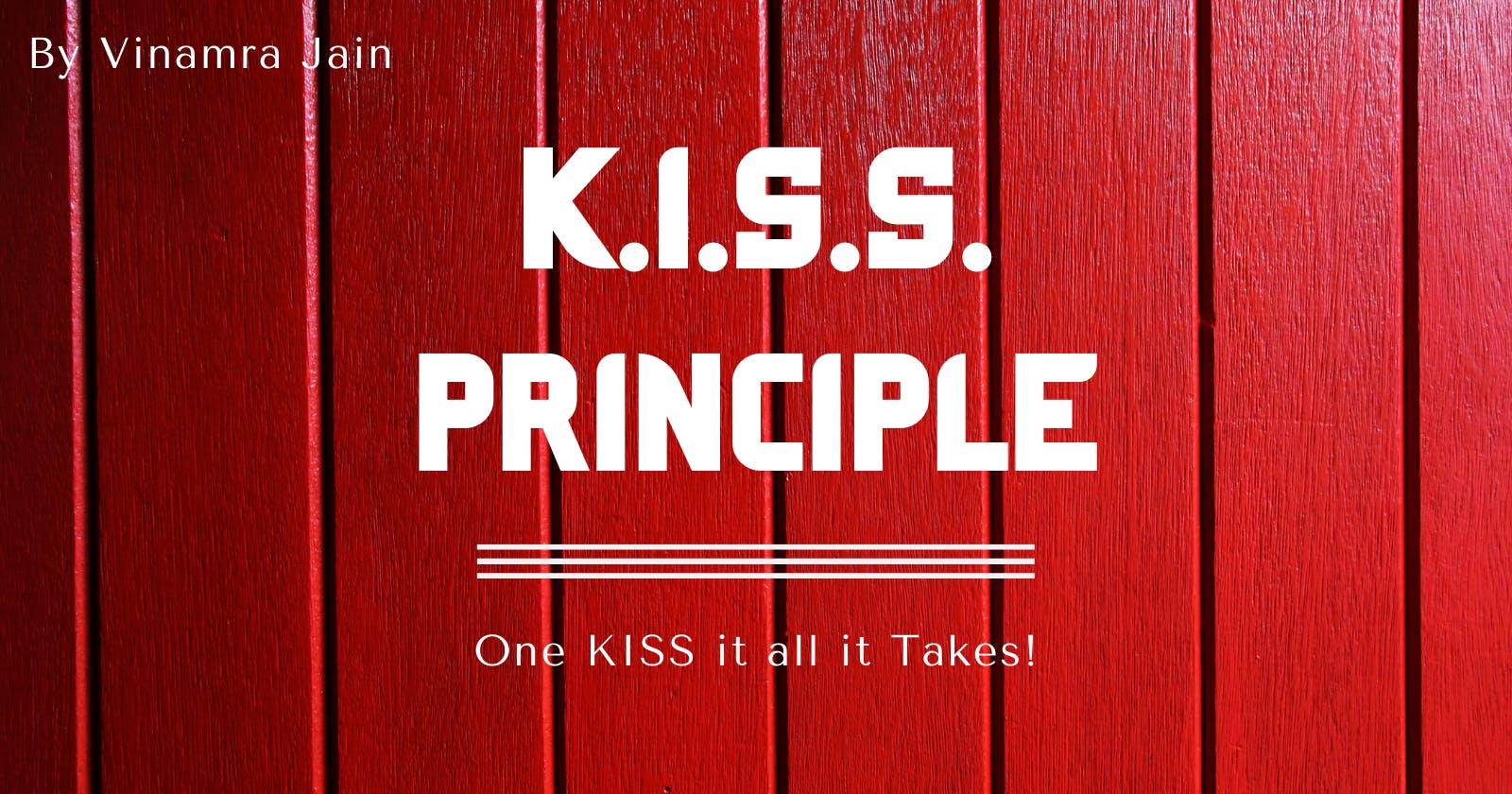Yes, you read it right. This short and sweet blog is on the KISS Principle. Well this is, I guess, the best day to write a blog on this topic.
So I have been reading a lot of books these days and I came across the KISS principle and some simple rules in THE RICH DAD POOR DAD which I think is really worthwhile to share.
The "Keep It Simple, Stupid" principle
If you want to impress people, make things complex but if you want to help them, KEEP IT SIMPLE!
Chapter Two : Lesson #2 Why Teach Financial Literacy? talks about the importance of Learning Finance . People generally think that money will solve all their problems and hence they have a tough ride. In reality, your Intelligence solves the problem and produces money. Money without financial intelligence is money soon gone.
It's not how much money you make. It's how much money you keep.
We have heard of a lot of cases where a person wins a lottery and soon goes broke due to lack of Financial Literacy.
A fool and his money is a one big party.
The Rich Dad is said to believe in the KISS principle - Keep It Simple, Stupid or the Keep It Super Simple principle which talks about a set of simple rules to become wealthy and how things are there simply right infront of our eyes but over-looked by over-smart people. Here adults are referred to as being over smart as they often feel proud to admit that something doesn't make sense and so, what do they do?
Skip it!
An intelligent adult often feels it is demeaning to pay attention to simplistic definitions and the difficulty majorly comes in asking adults to unlearn or become a children again (to learn something new).
Some Simple and interesting Rules of the Riches:
This is what I read in this particular chapter of the book. Later part of this blog talks about my POV (point of view) taking in mind the overall idea of, this and some other, good books.
Rule #1: Know the difference between an asset and a liability, and keep buying assets.
Is it that simple? Well, yes it is, but then how come people are not rich?
"That's because they fail to understand the difference between an asset and a liability", says the Rich Dad.
KISS(Keeping it Super Simple):
An asset is something that puts money in my pocket. A liability is something that takes money out of my pocket.
Your home, your car, your fancy mobile phone, etc. each of these things that you think are valuable are all liabilities. It sucks money out of your pocket and still so many of us still believe in them to be an asset. The picture becomes more clear when banks read your financial statement and deny you loans or offers a loan lesser than you expected because you have a very little to count in assets. You generally keep buying things that just becomes a cause of your expenses in the financial statement.
So ideally when should a person buy all this? Well the ideology is that you should keep investing in assets, and since assets add money to your income statement and puts money in your pocket by increasing your cashflow, you should buy your liabilities with that extra cashflow you generate. That too after a point of time. Before that, the extra cashflow should go in buying assets and thus increasing your cashflow deep down.
It's not the numbers, but what the numbers are telling you. It's just like words. It's not the words, but the story the words are telling you.
What defines an asset are not words but numbers and if you can't read the numbers, you can't tell an asset from a hole in the ground.
Rich people acquire assets. The poor and middle class acquire liabilities that they think are assets.
Rule #2: Just Remember the Rule #1.
😂 Yes it's that simple. Just re-iterate Rule#1 when you take money out of your savings next time.
My POV:
Rewarding 🎁 yourself time to time is also important. It's not the things that excite you , it's the emotion generated through those things that actually does that. This same book also talks about the 2 aspects of a person's emotion: fear and greed or fear and desire for more.
The desire for having more and more has no end but the desire of having something is not bad . In turn it's a reward of your hard work and patience. Every time you look at it, you know it's a reflection of your hard work. This revalidates the point that:
No one is amazed by your possessions as much as you are.
At the end we all work for fulfilling our desires and to live a comfortable life. So a proper balance should always exist. To know how much is enough is important. If you don't balance it properly you may fall into trouble. The solution is to know all the aspects of financial literacy rather than knowing just a bit.
Following the ritual of TFTD, here is a valentine week present 🎁 for you :
TFTD:
"If you find you have dug yourself into a hole... Stop digging."
Even if we have done a lot of wrong things in life, doing more won't cover it up. Don't look at the time you have lost doing that particular wrong thing. Instead, focus on the time that lies ahead and is at your door step saying:
"Hey 👋, come on, Let's go and find another path."
So on an ending note, If you found this blog interesting and helpful do let me know in the comment section. Share it with your loved ones and wish them a,
Happy KISS 💋 Day! 😜
